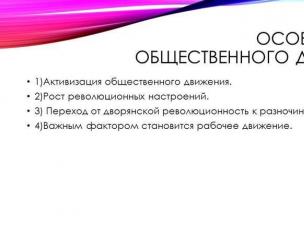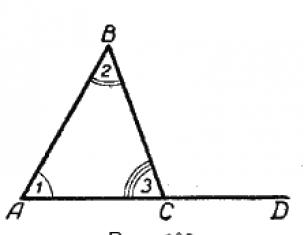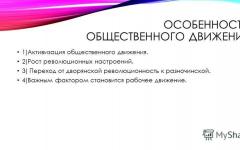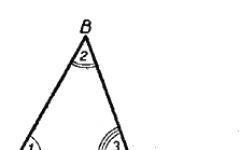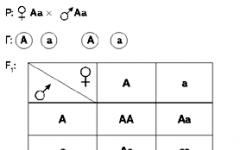Good afternoon Today is our tenth lesson. We continue free creative communication on all topics that interest us, that are pleasant to our ears and interesting for discussion.
As you noticed, when such a free exchange of opinions, free discussion begins (of course, not everything turns out exactly and correctly), I try not to correct it along the way. Because the most important thing is to reach the level of receiving pleasure, enjoying the fact that I communicate, I interact. Everything else is sanding...
You can only polish what you already have. Then you can make adjustments, add something, change something, enrich it. This is the first. But this does not save us from the need to constantly hammer out these basic schemes, so that we never have to be distracted by thinking about what is there: didn’t, will I, will you, and so on. So that this works absolutely automatically for us.
So, well, let's continue our stories. Nastya, what did you do yesterday or on Sunday? Was the something interesting in your life?
(Nastya, what did you do yesterday or on Sunday? Did anything interesting happen to you?)
Two days ago I went to other country with my play.
(Two days ago I went to another country on tour with my play.)
It’s play of director Krzysztof Zanussi. It's world famous director.
(This is a play directed by Krzysztof Zanussi. He is famous all over the world.)

We often go with play to another contries and cities.
(We often go on tour to other countries and cities with this performance.)
And I went to the… to Riga?
This time you went to Riga
this time- this time
This time I went to Riga and then to Tallinn. And it was very difficult and I feel hard because only today I came back
(I felt bad because we were only there for two days.)
So, you came back from Riga and Tallinn. And you are tired.
Yes. Because we have no time to sleep.
(Yes, because we didn't have time to sleep.)
You have no time to sleep.
Yes. And we slept about one hour
Nastya, did you like Latvia country?
Yes I like, but more I like Tallinn. It's very beautiful city
(Yes, but I liked Tallinn more. It’s a very beautiful city.)
How different before spectators? [wrong]
(What is the difference between viewers)
the difference between- difference between
What is the difference (between)? - Who cares? What is the difference (between)?
What is the difference between spectators?
(What is the difference between Russian and Estonian audiences?)
Yes, it’s very good question because the difference between Russians and Latvians it’s very big!
They are very... grateful, how can I say?
Grateful- grateful
They are grateful.- They are grateful.
grate- great, wonderful
They are very grateful, very clever... how can I say... they absorb everything that happens on stage.
to absorb- absorb, perceive
to persevere- perceive
perception- perception (perception)
Absorb in Russian
They absorb (percive) everything that happens on stage. So, they are more open.
stage- stage
Let's look here.
fly (flew)- fly
flight- flight, flight
Therefore, when they announce at the airport: flight number... such and such.
Well, you never answered this question, by the way.
I answered! I said they are very open and grateful. This good word. And the y had... holiday...
to happen- happen, happen
What happened?- What's happened? (What happened?)
What happened to you?- What happend to you?
Ah, I knew this word! It is simply forgotten, lost.
That's why we need structures! To string all these words together so that they are no longer lost.
But, excuse me, between everything we put that happens?
Everything that happens.
What is the title of your performance? (What is the name of your performance?)
title- name, title, rank
It’s play by Arthur Miller “All My Sons”. (It's based on Arthur Miller's play All My Sons.)
Yes! It's very famous. (Really? It's a very famous play.)
Yes, I play Ann Diver and in our play... take part...
- … take part Zolotukhin and Ekaterina Vasilyeva.
How do you feel yourself?
How do you feel?- How do you feel?
(yourself is not needed here)
How do you feel between monsters? (How do you feel among monsters?)
Of Russian theater.
Monster stars.
Oh, I love them! I love them so much and I always study…
learn- study
I learn from them.- I learn from them.
I learn from them because they are genius artists.
How do you say holiday? Not in the sense of a vacation, but when the audience comes to the theater, it is a holiday for them. And that’s how they come, beautifully.
In such cases, the word “event” is used.
event- event
It’s a big event from them.- This big event for them.
You can say
It’s a big event in a cultural life. - This is a great event in cultural life.
Russian writer Belinskiy ask go to the theater and did plays with him. It's clear?
The second part?
die- die
How to say it correctly?
Go to the theater and die in it. - Come to the theater and die in it. Belinsky.
Ok. I think they too learn from you.
They learn from you too.
I think yes because they are high professionals and they absorb all that... surrounds...
environment- environment, surroundings; environment
to clean up environment- clean the environment
preserve, protect the environment- protect the environment
to pollute the environment- pollute the environment
a healthy environment- healthy environment
Blood, young blood. They feed off young blood.
feed- eat
From here:
food- food
This theater stars are real snakes? Real snakes?
Are theater stars real snakes?
How do you say “under”?
If you under snakes... mean...
No. Means. Mean - to mean.
if you mean- if you mean
He wants to say if you mean the wisdom of snakes.
They always help me and love me
They love me and always help me
And respect you.
And respect me. And I respect them.
They're not toxic?
poisonous snake- venomous/biting tongue; poisonous snake
I saw this performance. I saw how they work.
(Here work, not works. Plural- they work)
I saw this performance. I saw how they work.
I think they do snakes. In a good way.
in good sense- in a good way
You can say: snakes in a good (positive) sense.
They act...
They act. They act in a wise way. They act wisely (in a wise way).
So, that are they really teddy bears? No? If they don't snake.
Panda? Winnie the Pooh?
If you say they're not real snakes, maybe they're real teddy bears? Since they are so wise, sensitive and affectionate.
I can’t... I can’t make such comments, I haven’t thought about it.
You can say: No comments.
Nastya studies with them...
Nastya learns from them…
- ... precisely this good quality.
Nastya learns from them this positive quality.
Nastya learns this good quality from them.
quality- quality
When I saw last performans, I see... she is not inferior to them. She became just as cunning.
When the same as someone, they say as... as.
She is as wise as them.- She is as wise as they are.
When he last saw this performance,
When was the last time he saw this performance?
he saw,
he saw,
that she is as wise as them.
that she is as wise as they are.
OK. So, we hop that we will see this.
OK. We hope to see this performance.
How will the support be?
support- support
to support- support
I support you.- I support you.
You support me.- You support me.
Arch support.
Or
I will give you my support.
Is a noun also support?
Ok. Now let us speak with Alisa.
Ok. Now let's talk to Alice.
Will you tell us what you did yesterday or on Sunday, weekend? What was interesting or important in your life?
Will you tell us what you did yesterday or on Sunday? Has anything important or interesting happened in your life?
I was at an exhibition in a Tretyakov gallery on Krymskiy Val.
I was at an exhibition of Nikolay Ge.
(I was at the Nikolai Ge exhibition at the Tretyakov Gallery.)

It's very big exposition. Very interesting.
(This is a large and very interesting exhibition...)
So, are there many paintings?
(Are there many paintings?)
How many?
(How much? How much?)
About two hundred.
About two hundred.
Two hundred paintings?
Alisa, Nikolay Ge is a very old artist?
Nikolai Ge is he very old? So can I ask? Is this an old artist?
Didn't die. He died. Did he live in the 19th century?
He lived in the 19th century.
He lived in the 19th century.
How's the plot?
plot- plot
What plot Nikolay Ge in his paintings?
What are the plots of his works?
Different.
Different.
Portraits, religious paintings.
Portraits, paintings on a religious theme.
Hi’s famous for his religious paintings.
He became famous thanks to his paintings on biblical subjects.
Religious paintings are scenes from the life of Jesus Christ?
Biblical scenes or scenes of the Bible.
The Bible- Bible
Alisa, did they have paintings, that you didn’t see before?
Alice, were there any works at the exhibition that you had not seen before?
Yes, of course. Because this exhibition… includes…
include- to contain, to contain, to contain (among)
Included among the guests were a number of famous musicians.- Among the guests were several famous musicians.
Do you include walking among your amusements?- Do you count walking among the things you enjoy?
All inclusive - all inclusive.
- …include many paintings from different museums. Russian museums, Ukrainian museums.
So, it is a collection from different museums?
Russian museums is Saint Petersburg, the Moscow Museum, the Ukrainian museum.
There are not only museum of Saint Perersburg. From other Russian museums.
Do you now is it full collection of Nikolay Ge?
(Is this a complete collection of paintings by Nikolai Ge?)
I think now yes...
So, this is the richest collection of Nikolay Ge’s paintings.
(This is the richest collection of paintings by Nikolai Ge.)
Yes, I also wanted to say that this is a unique opportunity to see such a big...
This is unique chance. We have a unique chance to see the full collection of Nikolay Ge’s paintings.
unique- unique
How to say “this is the last chance”?
This is the last chance.
So. On a one of the ex lessons you said that you work as a manager in a museum? What museum?
In one of your previous lessons, you said that you work as a manager in a museum. Which one?
I work in Tretyakov gallery.
(I work at the Tretyakov Gallery.)
So, I have a question.
The new of Tretyakov gallery?
This is the same.
It’s two places for one museum.
It’s two buildings for one museum.
(That's two buildings for one museum.)
It’s one museum located in two buildings.
Contemporary building.
Modern building
They specialize more...
They are more specialized.
They are more specialized in contemporary or 20th century and new exhibition.
contemporary- modern
contemporary art- modern Art
The Russian word modern is a tracing paper from Latin. Here the root is temp - time. Con is modern.
Latin prefix con- (con-) gives words the meaning of compatibility of action, unification (in connection, together, together); corresponds to Russian language prefix s-/so-, in Greek. language – sin- (sin-).
Do you have a question?
Yes, I have a question. I know from the facebook that the Tretyakov Gallery has the plans to change Andrey Rublyov’s icons with (change with) ... Is the Trinity an untranslatable concept?
…to change Andrey Rublyov’s Trinity for Gotto paintings. Is that true?
I learned from Facebook that the Tretyakov Gallery plans to replace Rublev’s “Trinity” with paintings by Giotto. This is true?
Not "Trinity". Other.
Another or other?
If there are many of them, then other, another is another (singular).
Exhibition exchange, yes?
I don't know.
This is two exhibitions from Tretyakov Gallery. It will go to Italy and Gotto collection will come to Moscow.
When will it come?
The next year.
December this year.
Is it possible to say today not as today, but as now?
No. Now - now.
So, the Gotto collection will come to Moscow, and the Rublyov’s icons will go to Italy.
Rublev's icons will go to be exhibited in Italy in exchange for paintings by Giotto.
Tell me, “Did you go?” - Did you go?
Is it not to leave?
Do you know something about the idea that different icons from museum… give away…
icon- icon
Return, I mean, right?
No, that there are world masterpieces, icons, there is such an idea to give them away, hang them there in the Cathedral of Christ the Savior.
This is Trinity in Uspensky Church in the Kremlin in Cathedral Square. Uspensky Cathedral special place…
Relax, just relax)
How will it contradict?
to contradict
1) contradict
Your actions contradict your words.- Your actions contradict your words.
2) object Syn: contravene
3) refute, deny
These two versions do not formally contradict one another.- Formally, these two versions do not refute each other.
contradiction- contradiction
Not? It's not true?
I hope... It hasn't been decided yet, of course. It's not abandoned.
Five hundred years Vladimirskaya icon presentation from Uspenskiy Cathedral. This is spiritual simbol for Russia.
This is a spiritual symbol of Russia.
This is spiritual simbol for Russia. And it was in cathedral for five centuries.
Yes. And the great Russian... earl, probably. Prince.
- …prince Ivan third in the fifteenth century invited Italian architect Aristotile Fioravanti with idea to make special church…
He invited him to build a special church. For this icon.
This church is a replica of very old Russian church in Vladimir city. Understand? Reply did I say it right?
Do you mean the church of Vladimirskaya Mother of God he is the... how is the shore?
Virgin Mary- The Virgin Mary
the Blessed Virgin, Mother of God- Our Lady
What will the shore be like?
coast- shore
- … coast of river Klyazma the biggest church in Vladimir?
Do you mean the Church of the Vladimir Mother of God on the banks of the Klyazma, the largest church in the city of Vladimir?
Yes. In the mountain.
on the hill- on a hill
Yes, yes I was there, and there is a line to this icon. Every time.
This is the same Assumption Cathedral.
So, this is the cathedral where the icon was located. This is the cathedral where this icon was located.
Let's talk about Dali. Did you go to Dali?
Let's talk about Dali. Did you go to Dali?

Don’t you like impressionists painting?
Impressionists I like very much but Dali is not impressionist.
(I love the Impressionists very much, but Dali is not an Impressionist.)
It's abstract art.
Ahh! Why did I say impressionism? I meant surrealism. What about surrealism?
surrealism- surrealism
Do you like surrealism?
(Do you like surrealism?)
Yes I like but I like more Rene Magritte.
(I like it, but I prefer Rene Magritte.)
He was also surrealist but different with Dali.
(He was also a surrealist. But they are very different.)
I think Dali it’s a big project.
I think Dali is just a big successful project.
Because we, you and me, studdied in Schukinskoe and our teacher of art always said that Dali it’s a very big (advertising) project.
I don't think so.
How to say “therefore”?
this is why- that's why
This is why love for Dali it’s not modern.
(This is why loving Dali is not fashionable now.)
Not modern?
Not fashionable.
Fashion is fashion.
And this is not modern, not modern.
It’s not in fashion in a special elite group, because Dali and Magritte, maybe I’m wrong, …
Every time Dali was against Magritte. Every time! Who... Who is cooler?
Magritte looked so miserable, downtrodden, he drew pictures, his own coffins. And Dali is such a showman! Doo-doo-doo everywhere! Therefore... They are both geniuses.
The topic of numbers ends. New words are taken to denote months. In this lesson, students answer the questions - how old are you? When is your birthday? What will you do tonight? Also, in this lesson, several adjectives and a structure will be added to your arsenal, which allows you to compare some objects by quality (that is, the degree of comparison).
Watch online episode 10 “Polyglot. French in 16 hours":
Lesson 10 summary:
QUEL HEURE EST-IL? - what time is it now?
IL EST DEUX HEURES - it's two o'clock now
IL EST DEUX HEURES ET DEMIE - it's half past three
Numbers:
TREIZE – thirteen
QUATORZE – fourteen
QUINZE – fifteen
SEIZE – sixteen
DIX-SEPT – seventeen
DIX-HUIT – eighteen
DIX-NEUF – nineteen
VINGT – twenty
TRENTE – thirty
QUARANTE – forty
CINQUANTE – fifty
SOIXANTE – sixty
SOIXANTE-DIX – seventy
QUATRE-VINGT – eighty
QUATRE-VINGT-DIX – ninety
QUATRE-VINGT-DIX-NEUF – ninety nine
DEUX CENTS – two hundred
TROIS CENTS – three hundred
MILLE - thousand
MILLE NEUF CENTS QUATRE-VINGT ONZE – one thousand nine hundred and ninety-one
DEUX MILLES DOUZE – two thousand twelve
J'AI VINGT ANS – I am twenty years old
J'AI TRENTE ANS - I am thirty years old
IL A TRENTE-CINQUE ANS - he is thirty-five years old
ELLE A QUARANTE ANS – she is forty years old
Months:
JANVIER – January JUILLET – July
FÉVRIER – February AOÛT – August
MARS – March SEPTEMBRE – September
AVRIL – April OCTOBRE – October
MAI – May NOVEMBRE – November
JUIN – June DÉCEMBRE – December
In the formation of a date, only one numeral - one, receives an ordinal form - first, for example, the first of June -LE PREMIER JUIN. All others take the usual form of the numeral, for example the secondJune –LE DEUX JUIN.
BON ANNIVERSAIRE! - Happy birthday!
QUEL ÂGE AS-TU? - How old are you?
QUEL ÂGE VOUS AVEZ? - How old are you?
Add one more very important one, not regular verb to your table -
PRENDRE- take
ILS/ELLES PRENNENT
J'AI PRIS- in the past time
If you are adding a prefix -COM, the result is a verb -
COM PRENDRE - to understand.
JE PRENDS – I take it
JE COMPRENDS – I understand
TU ME COMPRENDS? - you understand me?
JE TE COMPRENDS – I understand you
COMPRENDS-MOI! - understand me!
J'AI PRIS- I took
J'AI COMPRIS - I understand
If you add to the verbPRENDRE- take, attachmentAR, the result is a verb -
AP PRENDRE - teach, study.
J'AI APPRIS - I learned
J'APPRENDS LE FRANÇAIS - I'm learning French
When the article is in the masculine genderL.E.meets with prepositionÀ (indicating the direction), then it turns out -À + L.E.= AU
JE VAIS AU CINEMA - I'm going to the cinema
JE VAIS AU RESTAURANT – I’m going to a restaurant
JE VAIS AU MAGASIN - I'm going to the store
If the noun is feminine or starts with a vowel thenÀ AndLAare saved
JE VAIS À LA MAISON – I'm going home
CHAQUE JOUR – every day
LE PREMIER JOUR – first day
LE DERNIER JOUR – last day
LA DERNIÈRE FOIS – last time
LA PREMIÈRE FOIS – first time
COMBIEN DE FOIS? - how many times?
J’AI PRIS UN CAFÉ – I drank coffee
PLUS– more, more
PLUS FROID – colder
PLUS CHAUD – warmer
PLUS HAUT – higher
PLUS BAS – below
PLUS INTÉRESSANT - more interesting
PLUS JEUNE – younger
QUE- how
CETTE MAISON EST PLUS GRANDE QUE L’AUTRE – this house is larger than the other
ELLE EST PLUS JEUNE QUE TOI – she is younger than you
Adjectives, like nouns, can have masculine and feminine forms. Usually female uniform the adjective is formed with the addition of the letter E, as a result of which the last letter in the masculine form begins to be read, for example -FROID/FROIDE.
| M | CHAUD – PLUS CHAUD QUE | LE PLUS CHAUD |
| BON–MEILLEUR | LE MEILLEUR | |
| AND | CHAUDE – PLUS CHAUDE QUE | LA PLUS CHAUDE |
| BONNE – MEILLEURE | LA MEILLEURE | |
| BIEN | MIEUX |
New words:
POUR-CENT - percentage, POUR - for, CENT POUR-CENT - 100%, SEMAINE - week, MOIS - month, months, ANNIVERSAIRE - birthday, anniversary, ÂGE - age, PRENDRE - take, COMPRENDRE - understand, APPRENDRE - teach , study, RECONNAÎTRE - find out, HÔPITAL - hospital, JEUNE FILLE - girl, NOUVEAU - new, NOUVELLE - new, NOUVELLE - short story, DE NOUVEAU - again, PREMIER/PREMIÈRE - first/first, DERNIER/DERNIÈRE - last/last, FROID /FROIDE – cold/cold, CHAUD/CHAUDE – hot/hot, HAUT/HAUTE – high/high, BAS/BASSE – low/low, BON/BONNE – good/good, MEILLEUR/MEILLEURЕ – best/best, BIEN – good , MIEUX - better CHAQUE - every, LA FOIS - once, RÉCEMMENT - recently, recently, PLUS - more, more, QUE - than
Conclusion:
It is necessary to make do with a few words in colloquial speech, in Russian this is exactly what you do. And when you start speaking a foreign language, it seems to you that you need to create some text in Russian and then translate it into another language. But, most often, people use a small set of words that can be expressed or understood.
We are starting the tenth lesson from the first course using Dr. Pimsleur's method of American English for Russian speakers.
A list of all lessons is in the article Learning English using Dr. Pimsleur's method
Listen to this conversation.Listen to this conversation.
Listen to this conversation.
A - John, I’d like to have something to eat with you, ok?
Q - Yes, but at what time? At two o'clock?
A - No, later.
B - Oh, I understand. At eight o'clock or at nine o'clock?
A - Yes, at nine o’clock.
Do you remember how to say “I would like something to eat”?
Ask “what would you like to do?”
What would you like to do?
to do
Reply “I’d like something to eat too.”
I'd like to have something to eat too.
Ask “with whom?”
With whom?
With whom?
With you.
With you.
With you.
Reply “I would like to have something to eat with you.”
I'd like to have something to eat with you.
How to ask “what do you want to do?”
What do you like to do?
Say “I want to buy something.”
I want to buy something.
Now tell me that you would like to buy something.
I'd like to buy something.
Remember how to say “I would like to buy two bottles of beer”?
I'd like to buy two beers.
Say “two bottles of beer” again.
Two beers.
Beers
Now try asking “when do you want to buy beer?”
When do you want to buy beer?
Ask “what time is it?”
At what time?
Answer "one hour."
At one o'clock.
one
one
o'clock
one o'clock
At one o'clock.
Ask "at nine o'clock, okay?"
At nine o'clock, ok?
Ok
Answer “no, at eight o’clock.”
No, at eight o'clock.
eight
eight
at eight o'clock
Say “okay, at two o’clock.”
Ok, at two o’clock.
two
Ok, at two o’clock.
Say "no, you don't understand."
No, you don’t understand.
Ask if she would like something to drink.
Ask if she would like to have something to drink with you.
Would you like to have something to drink with me?
with me
Reply “no thanks, but I would like something to eat.”
No, thank you. But I'd like to have something to eat.
I'd like to have something to eat.
Say “sorry, I don’t understand.”
I’m sorry, I don’t understand.
Ask “what would you like to do?”
What would you like to do?
Would you like something to drink?
Would you like to have something to drink?
Or would you like something to eat?
Or would you like to have something to eat?
Or Or would you like to have something to eat?
Say "I don't know."
I don't know.
I don't know.
Say “I would like something to eat.”
I'd like to have something to eat.
Ask “with whom?”
With whom?
With you.
With you.
How about asking “would you like to eat something with me?”
Would you like to have something to eat with me?
with me
Say “yes, in a restaurant,” meaning any restaurant at all.
Yes, at a restaurant.
Now say “Yes, at the Park Prospect restaurant.”
Yes, at the Park Avenue restaurant.
Ask "do you know?"
Do you know?
Ask “do you know where the restaurant is?” Don't forget about word order.
Do you know where the restaurant is?
He is here? Listen and repeat.
Is it here?
It it Is it here?
The word "it" can also mean "he" or "she" when these words refer to certain objects.
Answer "no, he's not here."
No, it's not here.
Say "he's there."
It's over there.
Restaurant on Parkovy Prospekt.
The restaurant is on Park Avenue.
Ask when you would like to eat.
When would you like to eat?
Answer "at one o'clock or at two o'clock."
At one o'clock or at two o'clock.
Or
Ask “what time is it?”
At what time?
At what time?
Here's how to ask “what time is it?” Listen and repeat.
What time is it?
is it is it What time is it?
Notice the word "it".
Ask me “what time is it?”
What time is it?
Try answering “it’s nine o’clock now.” Be sure to use the shortened form in your answer.
It's nine o'clock.
It's
What time is it?
Answer “it’s two o’clock now.”
It's two o'clock.
It's two o'clock.
Here's how to say "it's five o'clock." Listen and repeat.
It's five o'clock.
five
five
It's five o'clock.
Ask me again “what time is it?”
What time is it?
Listen and repeat “it’s three o’clock now.”
It's three o'clock.
three
th th three
three
Did you notice the “th” sound at the beginning of this word?
Say "three" again.
three
three
Say "it's three o'clock now."
It's three o'clock.
Tell me it's five o'clock now.
It's five o'clock.
Listen and repeat “it’s four o’clock now.”
It's four o'clock.
four
four
It's four o'clock.
Say "it's four o'clock now."
It's four o'clock.
Say it's five o'clock now.
It's five o'clock.
Say it's two o'clock now.
It's two o'clock.
Two
Say it's four o'clock now.
It's four o'clock.
Four
Is it four o'clock now?
Is it four o'clock?
Is it four o'clock?
Say “no, it’s three o’clock.”
No, it’s three o’clock.
No, it’s three o’clock.
Say “it’s eight o’clock.”
It's eight o'clock.
It's eight o'clock.
Say "four o'clock."
Four o'clock.
Ask me “what time is it?”
What time is it?
Answer “it’s five o’clock now.”
It's five o'clock.
Nine o'clock.
Nine o'clock.
Three hours, three o'clock.
Three o'clock.
One hour.
One o'clock.
Five hours.
Five o'clock.
Four o'clock.
Four o'clock.
Ask “what time is it?”
What time is it?
Answer, “I don’t know, but I’d like to get something to eat.”
I don't know. But I'd like to have something to eat.
Not now, later.
At two o'clock or at three o'clock.
At two o'clock or at three o'clock.
"No, I'm going to eat now." Listen and repeat.
No, I'm going to eat now.
Going
Going
going to eat
I'm going to eat
“I"m going to eat” means that I am going to eat.
Tell me what you are going to eat now.
I'm going to eat now.
Try saying "you're going to eat."
You are going to eat.
You are going to eat.
How to say “you are Russian”.
You are Russian.
Remember how to ask “are you Russian?”
Are you Russian?
Are you
Using the same form at the beginning, ask “are you going to eat?”
Are you going to eat?
Are you
Are you going to eat?
Answer “yes, I’m going to eat.”
Yes, I'm going to eat.
Try saying "I'm going to lunch."
I'm going to have lunch.
Now.
Now.
Say “I’m going to have lunch now.”
I'm going to have lunch now.
I'm going to have lunch now.
Say "I'm going to eat."
I'm going to eat.
At five o'clock.
At five o'clock.
Say “I’m going to eat at five o’clock.”
I’m going to eat at five o’clock.
Ask “are you going to eat?”
Are you going to eat?
Now ask me if I'm going to eat at five o'clock.
Are you going to eat at five o’clock?
Answer “no, at eight o’clock, okay?”
No, at eight o'clock, ok?
At eight o'clock, ok?
Say "I'd like something to drink."
I would like something to drink.
At five o'clock.
At five o'clock.
Now try saying “I’m going to get something to drink.”
I'm going to have something to drink.
Tell me again that you are going to drink something.
I'm going to have something to drink.
Now ask “are you going to have something to drink?”
Are you going to have something to drink?
Ask "when?"
When?
When?
Answer "at three o'clock or four o'clock."
At three o'clock or at four o'clock.
Say "I'm going to have something to drink at nine o'clock."
I’m going to have something to drink at nine o’clock.
Ask “what time is it?”
What time is it?
What time is it?
Answer “one hour.”
One o'clock.
One o'clock.
Say "it's one o'clock now."
It's one o'clock.
It's one o'clock.
Say "thank you, I'm going to lunch."
Thank you. I'm going to have lunch.
Thanks. I'm going to have lunch.
Say “and I’d like to buy two beers.”
And I’d like to buy two beer.
A young woman would like to talk to you. Listen to what she tells you and answer her questions.
A - Hello
B - Hello
A - How are you?
B - I’m fine.
B - I’m fine thanks.
A — Excuse me, would you like to have lunch with me?
B - Yes, thank you.
B - Yes, I would
B - Yes, I’d like to.
Want to eat an hour later than she suggests.
A — At what time would you like to eat? At eight o'clock?
B - No, at nine o’clock.
A - No, not at nine o’clock. At two o'clock, ok?
B - No, not at two o’clock, at three o’clock.
A - Three o'clock? No thanks, but at four o’clock, ok?
B - No not at four o’clock, at five o’clock.
A - No, not at five o’clock.
Ask when she wanted to have lunch.
When would you like to have lunch?
I don't know.
Ask if she wants to have lunch or not.
Do you want to have lunch?
Do you want to have lunch?
Yes, but when?
Tell her that you are going to have lunch now.
I'm going to have lunch now.
Ask if she is going to have lunch with you.
Are you going to have lunch with me?
How will she respond, “Yes, I’m going to have lunch with you”?
Yes, I’m going to have lunch with you.
Ask “but when, miss?”
But when, miss?
Later, sir. Later.
In this episode, students actively communicate in English language on different topics. The activities they did the previous day are discussed. Even Mikhail and Alisa took a lot of time talking about the time they spent. New ones are added to the conversational “base” English words and expressions. The teacher persistently repeats that it is necessary to complete the basic education schemes English sentences to automaticity. Dasha is still absent from class.
Watch free online English lesson 10 Polyglot:
Lesson summary:
Petrov emphasizes that when a free exchange of opinions and discussion begins, naturally not everything turns out exactly and correctly, and Dmitry tries not to correct the students during the conversation. Because the most important thing is to reach the level of pleasure and enjoyment from communicating in English. Speech polishing happens after - you can polish what you already have. Then you can make adjustments, change, enrich English speech. But this does not eliminate the need to constantly “hammer” basic schemes, so that later we do not have to be distracted by thinking, so that the correct grammatical formulation of words occurs automatically.
Active vocabulary of the lesson (English words and expressions and translation):
This time - this time
That is the difference - who cares
To absorb – absorb
Fly (flew) - fly
Grateful – grateful
Flight - flight, flight
The difference between… - difference between…
To perceive - perceive
Perception - perception
To happen - happen, occur
I learn from them - I learn from them
Unique - unique
Environment – environment, surroundings
If you mean – if you mean
To support - support
In good sense - in a good way
Quality - quality
She is as wise as them - she is as wise as they are
Support - support
Contemporary - modern
Icon – icon
The Bible – Bible
In fashion - in fashion
Out of fashion - not fashionable
Bullshit - sucks
Cuisine – national food, cuisine
fashion – fashion
Announcement - announcement
Sign - inscription, signature
Owner - master, owner
To reserve table – reserve a table
To cook - prepare
Item – subject, product
To take order - accept the order
Today's lesson will be devoted to casual communication on various topics related to our life experiences. When studying foreign language it is very important to remember that the best way to study a foreign language is to speak (The best way learn a foreign language - speaking). Expressing your own thoughts allows you to develop and improve your language skills.
Relaxed communication as a tool for mastering a foreign language
Grammar is undoubtedly a useful thing, but it only serves the basis of our oral speech , practical communication. The grammatical structures we study in such detail are, in fact, nothing more than foundation, on which we build brick by brick building, spoken word. Trying to master a new language, string the words you know like beads onto fishing line - grammar diagram, but do not be afraid to make a mistake, because fear paralyzes and enslaves. Remember, language is given to a person for communication, and silence in this case is by no means golden!
So, the main grammatical tense, which helps to talk about what happened to us at the nth time ago called Past Simple and is formed as follows:
| Positive Sentence (+) |
Negative Sentence (-) |
Interrogative Sentence (?) |
| V(2/ed)…. | didn't V... | DidV...? |
| 1.It gave gave | 1.It didn't give me a chance to see wonderful paintings. - This didn't give I have the opportunity to see wonderful paintings. | 1. Did it give me a chance to see wonderful paintings? – Gave Is this an opportunity for me to see wonderful paintings? |
| 2.We rehearsed a new play yesterday. - We rehearsed new play yesterday. | 2.We didn't rehearse a new play yesterday. - We didn't rehearse new play yesterday. | 2. Did we rehearse a new play yesterday? - And we yesterday rehearsed new play? |
* is the subject of the sentence, expressed by a pronoun (I, she) or a noun (price - price, game - game), and V- verb conveying action, placed in second form, if it is irregular or regular verb with added ending -ed.
How to figure out if a verb is correct? Very simply wrong you just need learn by heart ! There is a table for this irregular verbs. Here are some of them:
| Verb (Verb) | Verb 2 | Verb 3 | Russian Translation |
| feed | fed | fed | feed |
| go | went | gone | walk |
| See | saw | seen | see |
| meet | met | met | meet |
| lose | lost | lost | lose, lose |
| win | won | won | win, win |
| take | took | taken | take |
| be | was | were | be |
| give | gave | given | give |
To form a sentence, select a form from second speakers!!!
If the verb does not appear in the table of irregular verbs, then there are no problems, just add the ending to the stem -ed.
If the sentence is negative or interrogative, we use the verb in the first form, since we use auxiliary DID !
Now let's get back to life situations
Imagine yourself on tour actor or actress(actor, actress), who is asked about what has happened in his life recently. Let's carry out discussion(discussion) on a given topic.
– What did you do yesterday?(What did you do yesterday?) – the interlocutor asks interestedly. – Was there something interesting in your life?(Did anything interesting happen in your life?).
You, of course, begin to describe the events that occurred. The first thing a wandering person needs is to point out the fact that he does not sit still, but travels. How? The fastest and most common way is air transportation. "Fly" in English to fly, and if your flight (a flight) took place yesterday, then you flew(form of the verb in the simple past tense). Did you fly to Riga yesterday? Let's say
I flewto Riga yesterday – I am summer yesterday l V Riga.
Note! the direction of your flight is indicated by a preposition “to” – flu to Riga, to Moscow, to London.
We've sorted out travel, let's get back to your occupation. Are you an actor (or just creative person), which means people, spectators are extremely important to you, their perception is important - perception, the way they perceive(perceive) and absorb[əb’zɔːb] (understand) what you want to convey to them. As a rule, for good game the public remains extremely Grateful[‘greɪtf(ə)l], grateful.
However, there are no two identical people in the world and, especially, identical nations, which means that the question should be answered:
What is the difference between….? - What is it? difference between….?
And, of course, describe your impressions[ɪm’preʃ(ə)ns] impressions of visiting a particular city, city[‘sɪtɪ].
Expressions for dialogue
Let's give a few more useful words and expressions that can be useful in a friendly dialogue, dividing them into groups.
Firstly, are very important introductory structures type:
- I will be short - I will be brief.
- At the end of the talk - at the end of the conversation.
- At the same time - at the same time.
- Fortunately/unfortunately – fortunately/unfortunately.
- In a positive/good sense - in a good sense.
- It means - it means.
- Sure - of course.
Unfortunately,we never met before – Unfortunately, we have never before met.
Don't forget to use expressions like these!
Secondly, It is impossible to do without naming objects and phenomena of reality in speech.
- Price – price.
- Team - team.
- Opinion [ə’pɪnjən] – opinion.
- Space – space.
- Stage - stage. On stage - on stage.
Thank you to our team spirit we won. - Thanks to teams in our spirit, we won.
Third what we do in life.
- To spend time - spend time.
- To keep silence - to remain silent.
- To go to bed - go to sleep
- To feel – to feel/to feel.
After the rehearsal I felt better - After the rehearsal, I felt better.
And, of course, adverbs indicate time and frequency of action.
- Often [‘ɔf(t)(ə)n] / rarely [‘seldəm] – often / rarely
- Usually [‘juːʒ(ə)lɪ] – usually
He often repeated that on air – He often repeated this on air.
We rarely went to restaurants. - We rarely went to restaurants.
One more thing! To each to modern man you need to be familiar with the names of some realities. For example, we often use biblical names in speech:
- Jesus Christ - Jesus Christ
- Virgin Mary - Mother of God
- Trinity - Trinity (the famous icon of A. Rublev, exhibited in the Tretyakov Gallery, has a similar name).
- And, of course, the Bible itself – the Bible.
So for modern (modern) knowledge of a foreign language is an essential necessity, but learning it is not easy, because you have to (you must, you require) remember and constantly keep in mind a huge amount of information. And nothing will help with this better than practical training.
1. Translate into English.
- Unfortunately, I did not see icons of Rublev.
- Usually we respected our elders.
- After the rehearsal the actor went to bed?
- I was Very thankful to you.
- This didn't mean we had to go to Paris.
- How did you take the news?
- What's the there was a difference between you?
2. Learn by heart the verbs given in the table and make up your own sentences with them.
3. Learn all the words and expressions given in the text of the lesson by heart. Try to constantly describe to yourself the situations that have happened to you.



